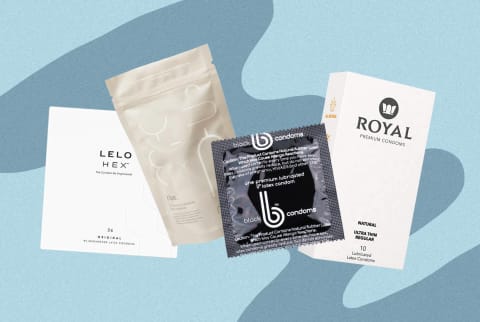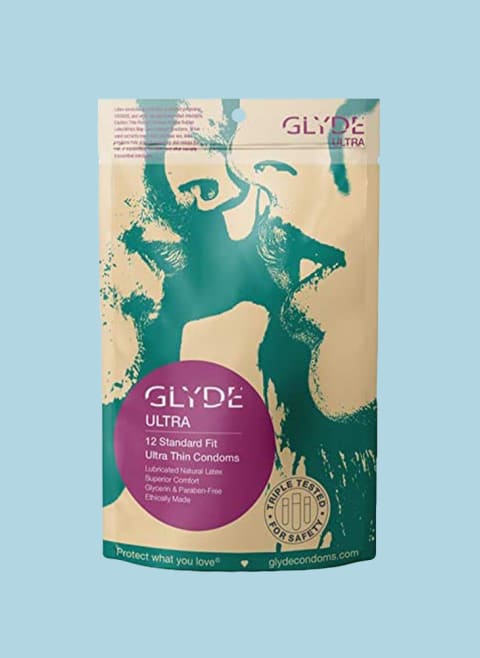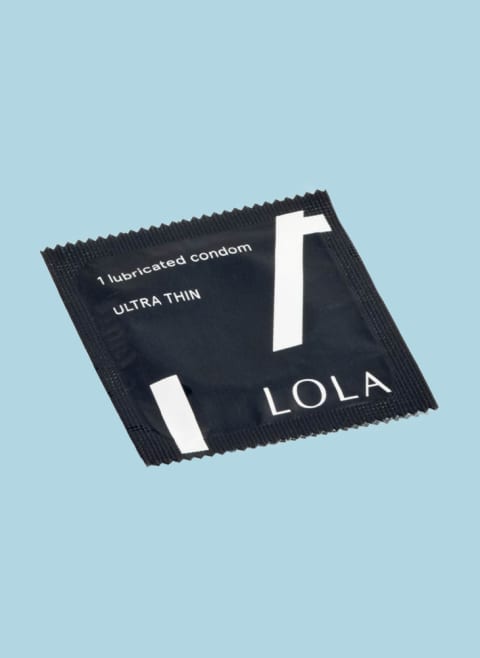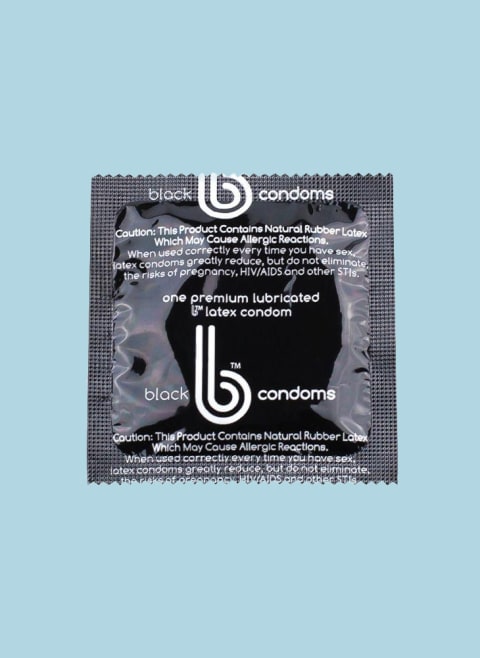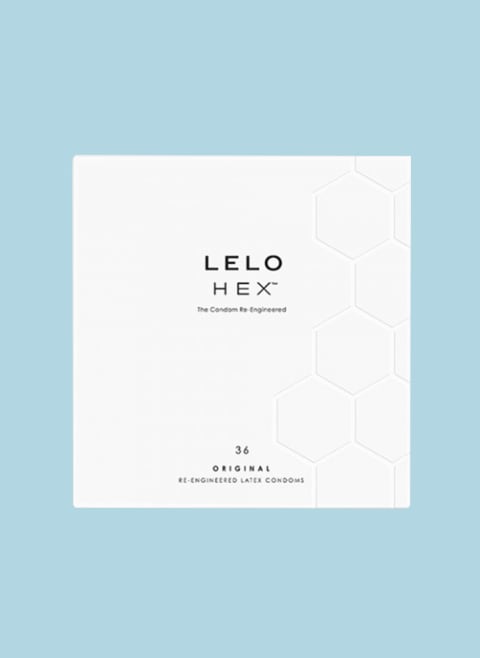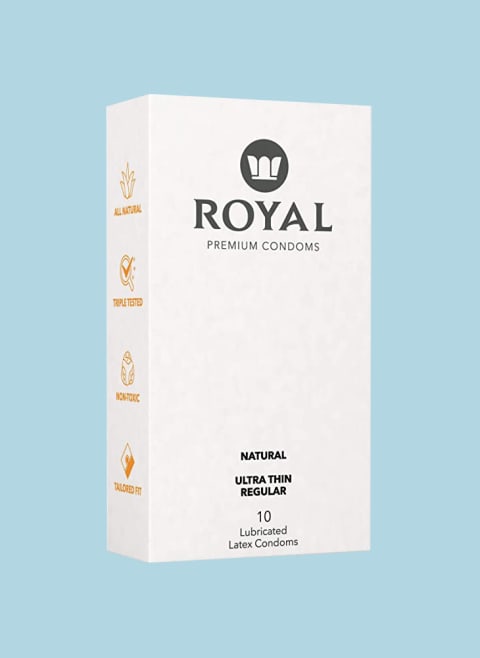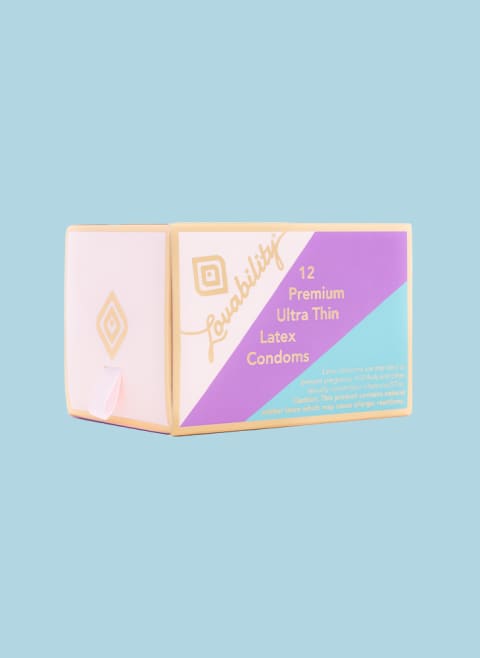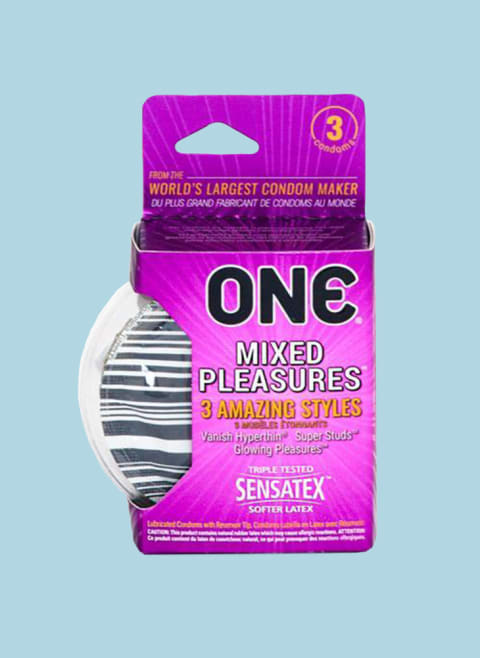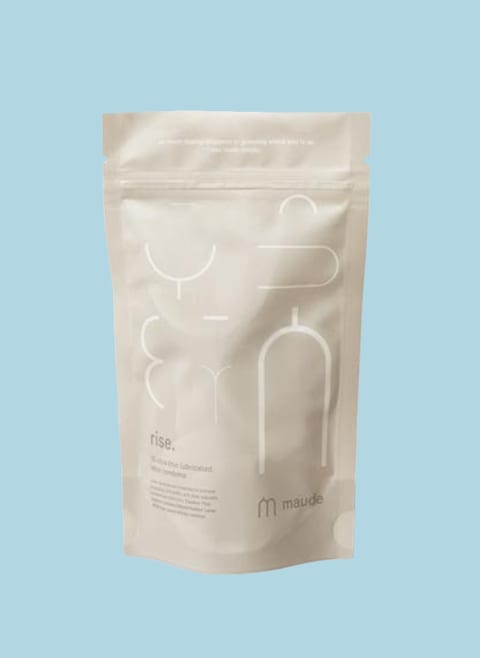Albeit necessary, condoms are a single-use product, which contributes to waste. That said, there are ways to be more thoughtful about the condoms you purchase. Some people assume condoms are just automatically vegan, but that’s not always the case. Most condoms are made from latex, which is a plant-based product. However, some latex condoms are made smooth by resting in a bath of casein (a milk byproduct), which makes them non-vegan, integrative gynecologist Shawn Tassone, M.D., Ph.D., explains. “There are also condoms on the market that are lambskin, which obviously would not qualify as a vegan condom,” he adds. ‘There is no hard-and-fast rule about the requirements for a product to call itself natural," OB/GYN Heather Irobunda, M.D., previously told mbg. “Sometimes, products with one or two natural ingredients can state that they are natural but may have lots of chemicals in them.” “Just because a condom is vegan doesn’t necessarily mean they are organic or chemical-free,” Tassone adds. “It just means they don’t use casein to soften the latex, and the products are not tested on animals.” And just like non-vegan condoms, they could still potentially contain harsh chemicals or unfriendly ingredients (i.e., gluten, talcum, parabens, nonoxynol-9, benzocaine, casein, nitrosamine, and spermicides) that could lead to an imbalance in the vaginal microbiome, according to Tassone. Being vegan simply specifies the lack of animal product; it doesn’t guarantee that ingredients are any better (or worse) for the vagina than any other condom. “Currently, companies that make condoms are not required to put the ingredients on the packaging because condoms are considered a medical device,” Tassone adds. This is why looking for well-trusted brands, that are transparent about their ingredients, sourcing, and manufacturing, is so important. Always talk to your health care provider if you have any issues, like irritation or burning, after sex with a condom. Additionally, anyone with a latex allergy should look for latex-free condoms. “Almost all condoms are made from latex or a latex derivative—stuff that takes forever to degrade,” Matthew Nolan, co-author of Oh Joy Sex Toy, told New York Magazine. Vegan condoms are often still made from latex, meaning they’re no better than ordinary condoms in terms of minimizing what ends up in the landfills. That said, it’s possible that brands that care enough to make a product vegan will also be more environmentally conscious about other areas of their business, from sourcing to packaging to shipping. This isn’t a guarantee, though, so be sure to read more about the businesses you’re supporting to understand what standards they hold themselves to. Third-party certifications can also help distinguish brands that are committed to ethical, sustainable practices. Ultra-thin condoms, GLYDE ($17.99) Large comfort fit condoms, Sustain Natural ($13.95) Ultra-thin latex condoms, LOLA ($11) Black latex, b condoms ($12) Tailored fit ultra-thin condoms, Royal ($12.99) Ultra-thin condoms, Lovability ($15) Mixed pleasure condoms, ONE ($6.99) Natural condoms, maude ($12) They’re not necessarily more natural or organic, and they can also be made with harsh chemicals that could disrupt the vaginal microbiome, just like any other type of condom. Buying from a trusted, ethical, and eco-friendly brand and consulting with your OB/GYN are the best ways to ensure your condoms are safe and effective.



